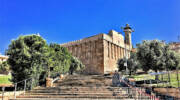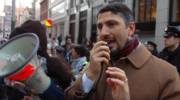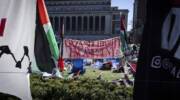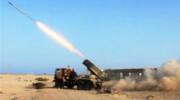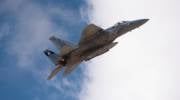This week’s portion of the Torah teaches us about the importance of looking past appearances.
By: Rabbi Ari Enkin, Rabbinic Director, United with Israel
This week’s Torah portion is Shlach (Numbers 13:1–15:41) and in it we read about how Moses sent spies to check out the Land of Israel in preparation for the nation’s arrival (and first war of independence!). Moses tells the spies to gather intelligence on a number of different details. One of his instructions is: “Check out the people who live there. … Are they strong or weak?”
The question is asked: how were the spies supposed to examine tens of thousands of people to see who was weak and who was strong? They didn’t exactly have a membership card to get into the local gym! How would they be able to determine this?
The commentators explain that the way for the spies to determine whether the inhabitants of the land of Israel were strong or weak was to take a look at the cities they live in. If the cities were open and unwalled — that was to be a sign that they were strong people and fighting them wouldn’t be easy.
This is because an open city shows that the inhabitants are scared of nothing and could defend themselves from any attack. On the other hand, if the cities were walled, it was to be a sign that they were weak. This is because a walled city shows that its inhabitants are scared of war and an attack, and need to hide behind high walls to defend themselves.
Bu wouldn’t most people think that the opposite is true? Fortified and walled cities are the features of highly militarized societies. As such, war with such people would probably hard. So too, one would think that war with an open city would be quick and easy.
What’s going on over here?
It is explained that the Torah is teaching us not to be deceived by appearances. Those who need to fortify themselves on the outside is a sign that internally they are weak. So too, people who don’t fear the outside are internally strong.
And so it is with us. Should we “put up walls” in order to protect ourselves from others who might have negative influences or should we be internally spiritually strong enough not to fear any outside influences?
Perhaps those who overly isolate themselves from the modern world do so because internally they are not strong enough in their religious beliefs not to be influenced by the ills of the modern world. Alternatively, those who are able to mingle with society (“open cities”) and still keep faithful show that they are well-grounded and committed to their beliefs. As with everything, balance is vital.
For more insights by Rabbi Enkin on this week’s Torah portion, click on the links below:
https://unitedwithisrael.org/living-torah-life-is-what-you-make-of-it/
https://unitedwithisrael.org/living-torah-combining-the-physical-with-the-spiritual/
https://unitedwithisrael.org/living-torah-lesson-of-the-spies/
https://unitedwithisrael.org/living-torah-the-land-of-israel-belongs-to-the-jews/
https://unitedwithisrael.org/living-torah-attitude-is-everything/
https://unitedwithisrael.org/lessons-from-the-spies/
Do You Love Israel? Make a Donation - Show Your Support!
Donate to vital charities that help protect Israeli citizens and inspire millions around the world to support Israel too!
Now more than ever, Israel needs your help to fight and win the war -- including on the battlefield of public opinion.
Antisemitism, anti-Israel bias and boycotts are out of control. Israel's enemies are inciting terror and violence against innocent Israelis and Jews around the world. Help us fight back!



